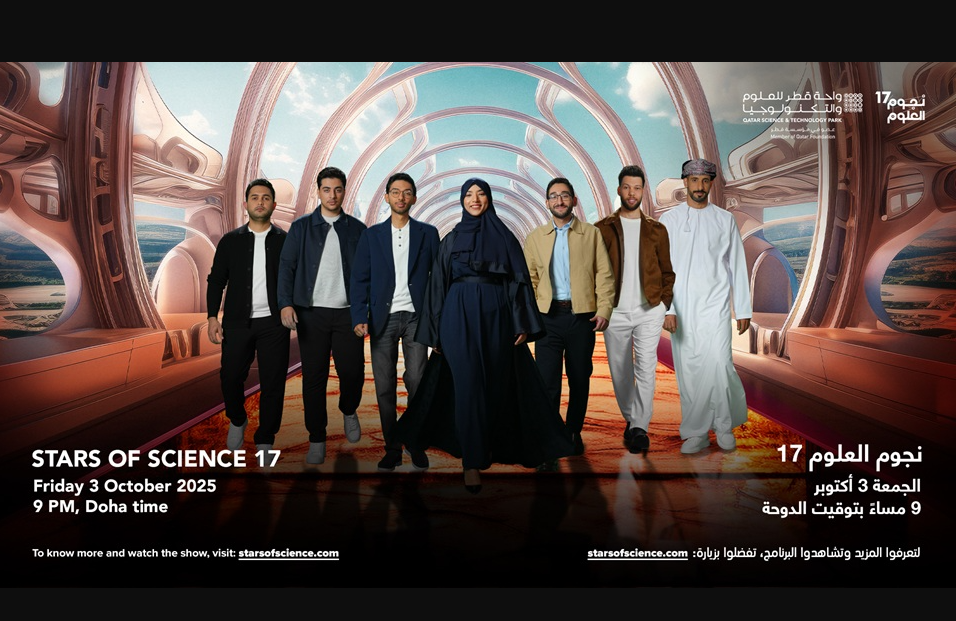The 17th season of Stars of Science, the long-running reality competition hosted by Qatar Science and Technology Park (QSTP), has once again placed the spotlight on Arab innovators tackling some of the region’s most pressing challenges — from surgical safety and health tracking to sustainability and marine protection.
Launched in 2009 and produced by Qatar Foundation, the program has aired more than 313 episodes to date, building a network of 175 alumni across 18 Arab nations. Collectively, these innovators have gone on to establish more than 55 startups across a range of industries, underscoring the program’s role as a launchpad for scientific entrepreneurship.
This season’s seven finalists exemplify that mission, presenting solutions rooted in lived experience while reflecting the region’s evolving innovation landscape.
Frontiers in Surgery
Two contestants are advancing surgical technologies. Tunisia’s Mohamed Kahna is developing a GPS-like surgical guidance system that overlays real-time visual and auditory instructions to assist doctors during laparoscopic procedures. His innovation, he explained, aims to provide “clear guidance in their most critical moments.”
Meanwhile, Jordan’s Khaldoun Megdady has built a 3D coronary artery simulation platform powered by AI, allowing surgeons to rehearse bypass operations before entering the operating room. Both tools highlight a growing emphasis on precision and safety in regional healthcare.
Powering the Green Transition
With electric mobility expanding across the Gulf, Jordan’s Mohammad AlShaikh Saleh has designed an AI-driven system capable of predicting battery failures using physics-based modeling. By emphasizing transparency in machine learning, Saleh hopes to support the region’s burgeoning EV sector, forecasted to surpass $10 billion by 2034.
Protecting Marine Ecosystems
From Oman, Mohammed Al Mur Al Salmi has created an enzyme-based spray to prevent bacterial buildup on ships and underwater structures. Unlike toxic anti-fouling coatings, his eco-friendly solution seeks to protect both local fisheries and marine biodiversity.
Health and Well-being
Algeria’s Laid Dardabou has integrated biomarker monitoring into a smartwatch, enabling users to track vitamin D levels and emotional health in real time. The innovation addresses widespread vitamin D deficiency across the region.
Saudi Arabia’s Razan Bahabri, completing her Ph.D. in Biomedical Engineering, is gamifying stroke rehabilitation. Her interactive therapy platform uses engaging exercises and remote clinician monitoring to help patients recover more effectively, transforming what is often a repetitive process into a motivating one.
Nature-Inspired Medicine
Finally, Algeria’s Ryad Hadj Habib is leveraging scorpion venom in a breakthrough therapy that prevents the immune system from blocking cancer treatments. Drawing on biomimicry, his research mirrors a long tradition of using natural designs to inspire medical innovation.
Together, these projects reflect a shared commitment to marrying global science with regional needs. More than a contest, Stars of Science has become a forum where Arab youth test bold ideas, collaborate, and shape the future of healthcare, sustainability, and technology.
Audiences can follow the progress of the finalists on Stars of Science, airing weekly until October 2025 across regional broadcasters and online. Full schedules are available at www.starsofscience.com.

